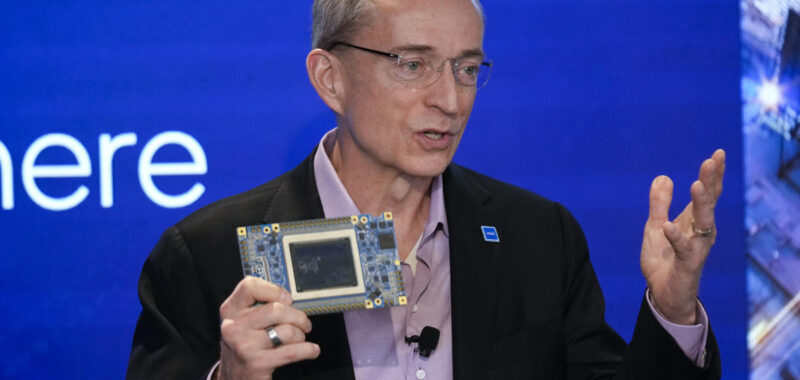Intel CEO Pat Gelsinger has retired, with David Zinsner and Michelle Johnston Holthaus named as interim Co-CEOs.
Gelsinger, whose career has spanned more than 40 years, also stepped down from the company’s board, effective Dec. 1, 2024. He started at Intel in 1979 at Intel and was its first chief technology officer. He returned to Intel as chief executive in 2021.
Intel said Monday that it will conduct a search for a new CEO.
Zinsner is executive vice president and chief financial officer at Intel. Holthaus was appointed to the newly created position of CEO of Intel Products, which includes the client computing group, data center and AI group and etwork and Edge Group.
Frank Yeary, independent chair of Intel’s board, will become interim executive chair.
“Pat spent his formative years at Intel, then returned at a critical time for the company in 2021,” Yeary said in a statement. As a leader, Pat helped launch and revitalize process manufacturing by investing in state-of-the-art semiconductor manufacturing, while working tirelessly to drive innovation throughout the company.
Last week it was revealed that the Biden administration plans on reducing part of Intel’s $8.5 billion in federal funding for computer chip plants around the country, according to three people familiar with the grant who spoke on the condition of anonymity to discuss private conversations.
“I can look back with pride at all that we have accomplished together,” Gelsinger said in the statement. “It has been a challenging year for all of us as we have made tough but necessary decisions to position Intel for the current market dynamics.”
The reduction is largely a byproduct of the $3 billion that Intel is also receiving to provide computer chips to the military. President Joe Biden announced the agreement to provide Intel with up to $8.5 billion in direct funding and $11 billion in loans in March.
The changes to Intel’s funding are not related to the company’s financial record or milestones, the people familiar with the grant told The Associated Press. In August, the chipmaker announced that it would cut 15% of its workforce — about 15,000 jobs — in an attempt to turn its business around to compete with more successful rivals like Nvidia and AMD.
Unlike some of its rivals, Intel manufactures chips in addition to designing them.
Shares of the Santa Clara, California, company, jumped more than 4% in premarket trading.

